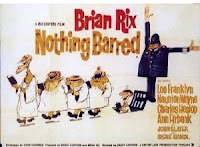 |
| Abel's Harp - once the Drum &; Monkey |
I have blogged before about the stories that it used to be possible to wander into pubs in the Shropshire hills and find the likes of Eric Clapton and Ronnie Lane giving unadvertised concerts.
The journalist Johnty O’Donnell, with whom I have recently swapped emails on the subject, has pinned down the truth of these stories.
As, of course, the
Shropshire Star tells it:
God, Slowhand . . . all nicknames for the guitar legend Eric Clapton.
And indeed he did appear, playing along with Ronnie Lane, previously of The Faces, to a packed house at a country pub in a night which has gone down in pop folklore. And all for just £1 on the door.
Some fans were turned away. Others were rumoured to have climbed in through the toilet windows at the Drum & Monkey at Bromlow.
The date was Friday, March 4, 1977.
Memories of that night will be recalled in a special programme on BBC Radio Shropshire on Sunday 7 February from noon to 1pm,
It is called The People’s History of Pop and forms part of a
BBC project collecting people’s pop memories and memorabilia from the 1950s to the 1980s. Johnty O’Donnell has been overseeing the project for Shropshire.
The Star reports ends by saying "the Drum & Monkey ... has passed into history".
Yes and no. When I first went there, more than a decade after this concert, it was the Callow Inn and resembled a little bit of suburban Birmingham set down in the Shropshire hills.
Last time I was there it had turned into a boutique hotel -
Abel's Harp - which I am told is currently closed for refurbishment.
Later. According to
its Facebook page, Abel's Harp reopened on Saturday 13 February:
Pop in for a drink with Vicky, stay awhile and sample Jude's delicious food or cosy up for one of our vintage afternoon teas!





















